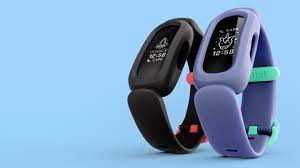
How do I measure the success of my digital marketing campaigns
Measuring the success of your digital marketing campaigns is critical for optimizing performance, maximizing ROI, and ensuring your efforts align with your business goals. Here’s a detailed, actionable guide to help you evaluate your campaign’s success effectively:
- Set Clear Goals and KPIs
Before diving into metrics, define your campaign goals. Are you aiming to increase brand awareness, generate leads, boost sales, or grow engagement? Each goal will have specific Key Performance Indicators (KPIs):
- Brand Awareness: Impressions, reach, website traffic.
- Lead Generation: Cost per lead (CPL), lead conversion rate.
- Sales: ROI, revenue, conversion rate.
- Engagement: Likes, shares, comments, time on page.
Setting SMART (Specific, Measurable, Achievable, Relevant, Time-bound) goals will make tracking success easier.
- Track Website Performance Metrics
Your website is often the hub of digital marketing activity, so monitoring its performance is crucial:
- Traffic Sources: Use tools like Google Analytics to identify where visitors are coming from (e.g., organic search, social media, paid ads).
- Bounce Rate: A high bounce rate may indicate irrelevant content or a poor user experience.
- Conversion Rate: Measure how many visitors complete desired actions (purchases, sign-ups).
- Session Duration: Longer sessions indicate higher engagement.
- Monitor Social Media Analytics
Each platform has built-in analytics tools to measure engagement and reach. Pay attention to:
- Engagement Rate: The ratio of interactions (likes, comments, shares) to impressions.
- Follower Growth: Indicates your audience’s response to content over time.
- CTR (Click-Through Rate): Tracks how often users click on your links.
Use platforms like Meta Business Suite, Twitter Analytics, and LinkedIn Insights to dig deeper into performance.
- Measure Paid Campaign Performance
For paid ads, platforms like Google Ads and Facebook Ads Manager provide detailed insights. Focus on:
- CTR (Click-Through Rate): Shows how compelling your ad is.
- Cost Per Acquisition (CPA): Calculates how much you’re spending to acquire each customer.
- Quality Score: A measure of your ad relevance and performance (specific to Google Ads).
- Return on Ad Spend (ROAS): Measures how much revenue you generate for every dollar spent.
- Leverage Email Marketing Metrics
For email campaigns, analyze:
- Open Rate: Indicates the effectiveness of your subject lines.
- Click-Through Rate: Measures engagement with the email content.
- Unsubscribe Rate: High numbers suggest your content may not resonate with your audience.
- Use Customer Feedback and Surveys
Quantitative data is invaluable, but qualitative insights provide context. Use tools like SurveyMonkey or Google Forms to gather customer opinions. Reviews and testimonials also highlight how well your campaigns align with customer expectations.
- Assess Long-Term Impact
While immediate metrics matter, don’t ignore long-term trends:
- Are your campaigns driving sustained growth in sales or traffic?
- Has brand awareness or loyalty improved over months or years?
- Are you seeing a consistent decrease in customer acquisition costs over time?
- Use the Right Tools
Maximize efficiency and accuracy by using digital marketing tools like:
- Google Analytics (web metrics).
- SEMrush or Ahrefs (SEO performance).
- Hootsuite or Buffer (social media tracking).
- HubSpot (overall campaign management).
Brand Ki Growth Double Karo
A digital marketing agency is a specialised organisation that helps businesses grow their online presence and achieve marketing goals through digital channels. These agencies offer a wide range of services, including search engine optimisation (SEO), social media management, pay-per-click (PPC) advertising, content creation, email marketing, and more. By leveraging data-driven strategies and modern tools, a digital marketing agency tailors campaigns to target specific audiences, increase brand visibility, and drive conversions. Partnering with a digital marketing agency allows businesses to stay competitive in the ever-evolving digital landscape while focusing on their core operations.
Conclusion
The success of your digital marketing campaign depends on continuous measurement and adjustment. By tracking the right metrics, setting clear goals, and leveraging analytics tools, you can uncover valuable insights to refine your strategy and achieve your objectives.
Pro Tip: Always compare your performance to industry benchmarks and your past campaigns to measure improvement. Remember, success in digital marketing is a journey, not a one-time event!



